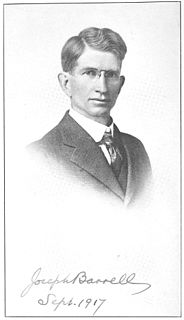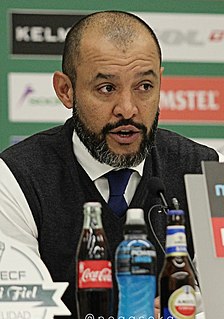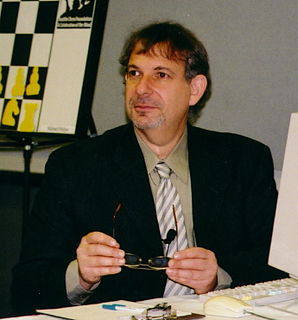A Quote by Joseph Barrell
Most tasks and tests will demand recall of isolated pieces of information, and I will not have to show how concepts and ideas are related or how facts illustrate underlying principles.
Quote Topics
Related Quotes
No longer can we afford to stuff the brains of the young with facts. The time is too short, the necessity for results too pressing. The new education must be based on the elimination of facts except as they illustrate principles. How to use facts, not how to accumulate them, is the purpose of true education.
The business plan should address: "How will I get customers? How will I market the product or service? Who will I target?" The principles of a business plan are pretty much the same. But after page one to two, everything is unpredictable, because costs or competition will change and you don't know how things will be received by the market. You have to be able to continually adapt. Companies that fail to adapt will die. Others are brilliant at adapting.
After giving a student the basic mating patterns and strategies you must begin giving them advanced concepts. At first these ideas will not make sense, many players will have a vague idea of what you are talking about but nothing more. Even a fragmented understanding of these concepts will prove useful though, and eventually they will improve as these lessons are assimilated by repetition and example.
Digital technologies are setting down the new grooves of how people live, how we do business, how we do everything--and they're doing it according to the expectations of foolish utopian scenarios. We want free online experiences so badly that we are happy to not be paid for information that comes from us now or ever. That sensibility also implies that the more dominant information becomes in our economy, the less most of us will be worth.
When certain concepts of TeX are introduced informally, general rules will be stated; afterwards you will find that the rules aren't strictly true. In general, the later chapters contain more reliable information than the earlier ones do. The author feels that this technique of deliberate lying will actually make it easier for you to learn the ideas. Once you understand a simple but false rule, it will not be hard to supplement that rule with its exceptions.
The leader beyond the millennium will not be the leader who has learned the lessons of how to do it, with ledgers of 'hows' balanced with 'its' that dissolve in the crashing changes ahead. The leader for today and the future will be focused on how to be - how to develop quality, character mind-set, values, principles, and courage.
Most people don't realize how important librarians are. I ran across a book recently which suggested that the peace and prosperity of a culture was solely related to how many librarians it contained. Possibly a slight overstatement. But a culture that doesn't value its librarians doesn't value ideas and without ideas, well, where are we?
By instructing students how to learn, unlearn and relearn, a powerful new dimension can be added to education. Psychologist Herbert Gerjuoy of the Human Resources Research Organization phrases it simply: 'The new education must teach the individual how to classify and reclassify information, how to evaluate its veracity, how to change categories when necessary, how to move from the concrete to the abstract and back, how to look at problems from a new direction — how to teach himself. Tomorrow's illiterate will not be the man who can't read; he will be the man who has not learned how to learn.'

































